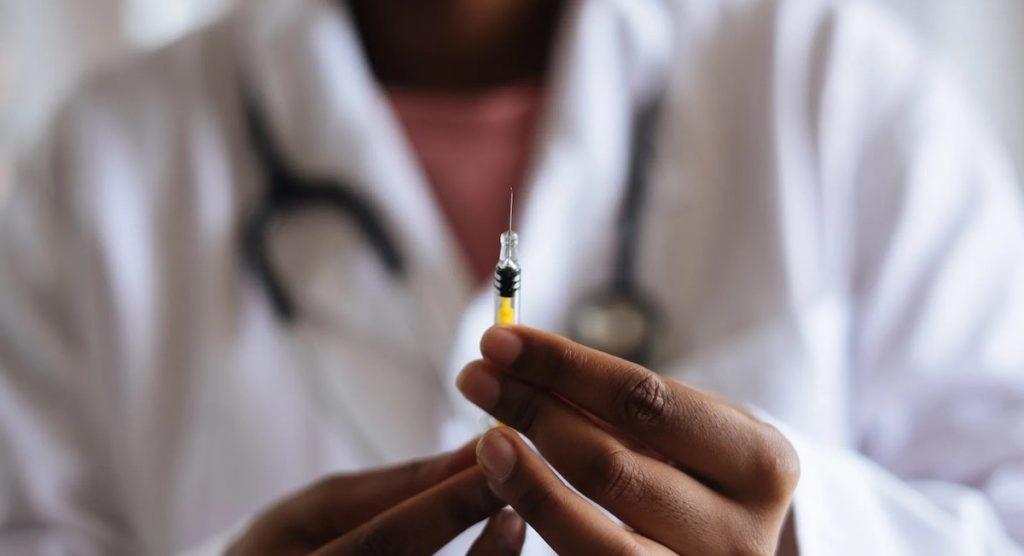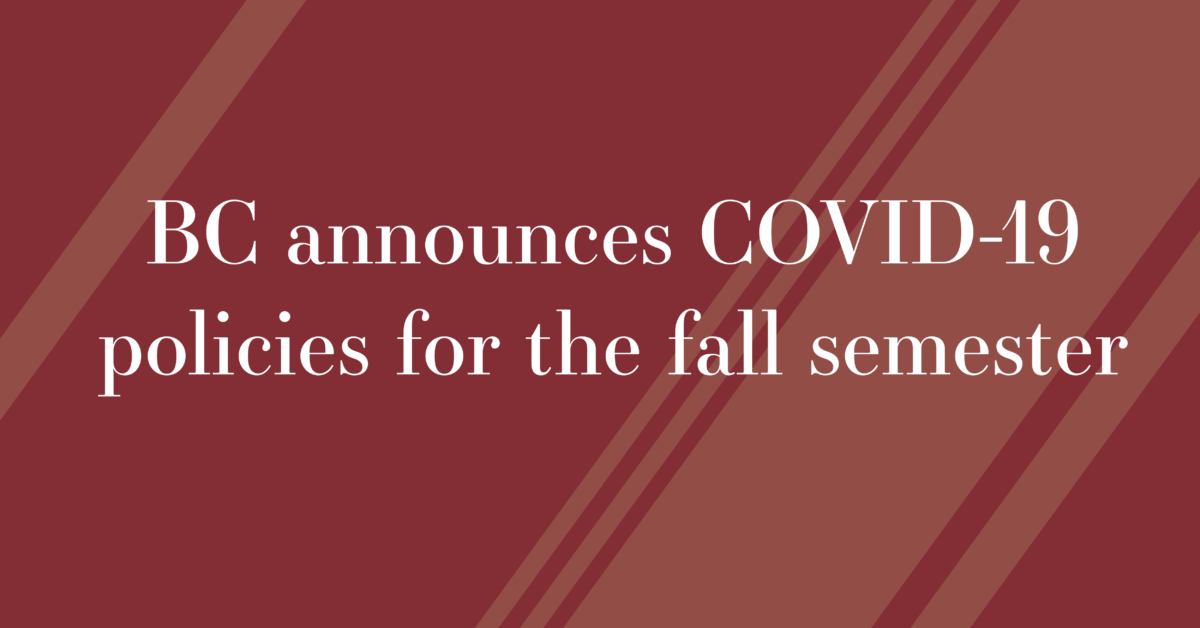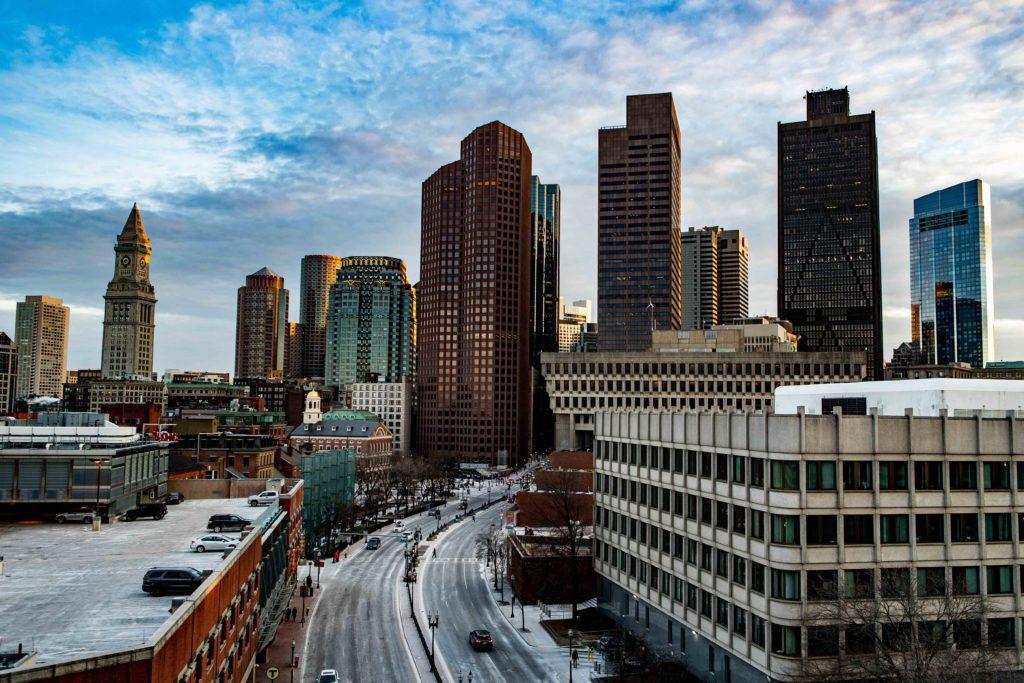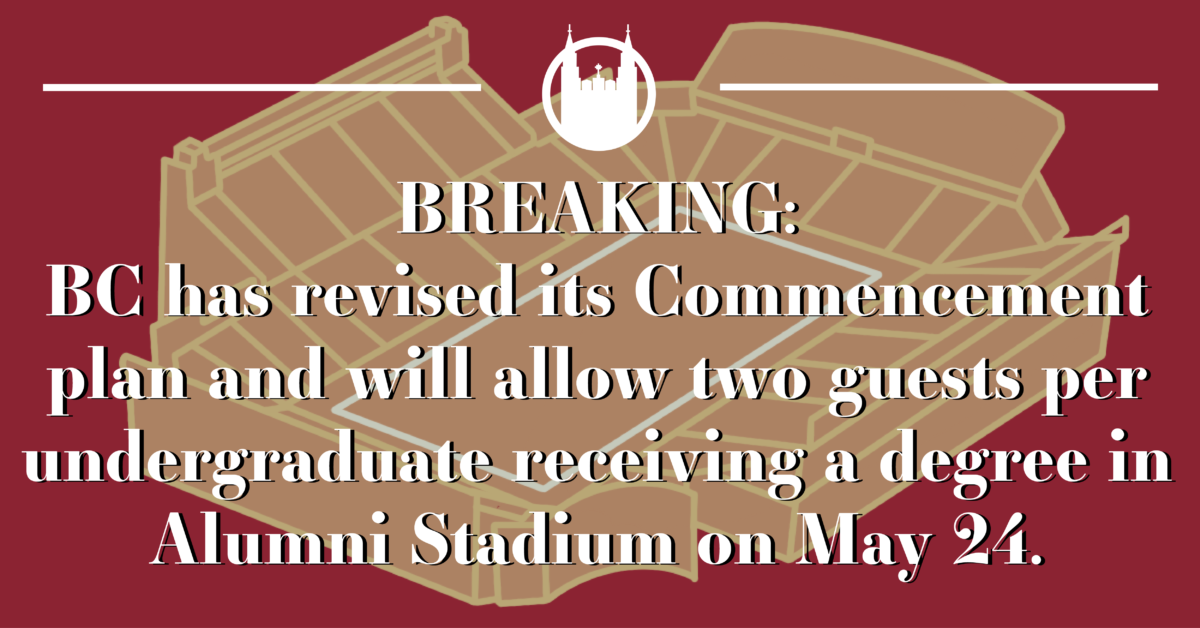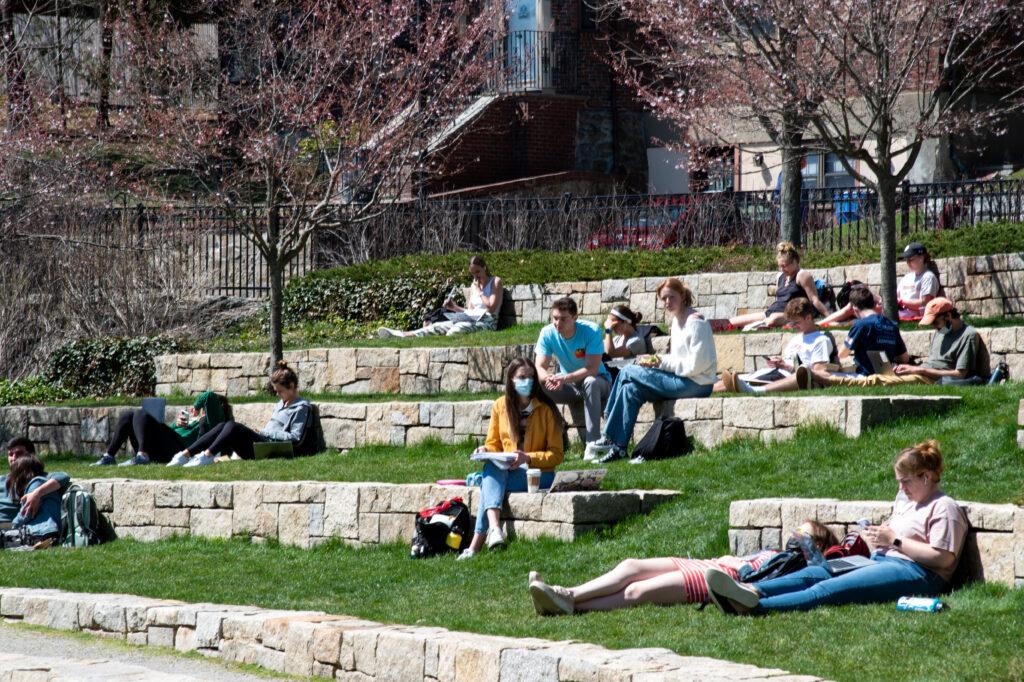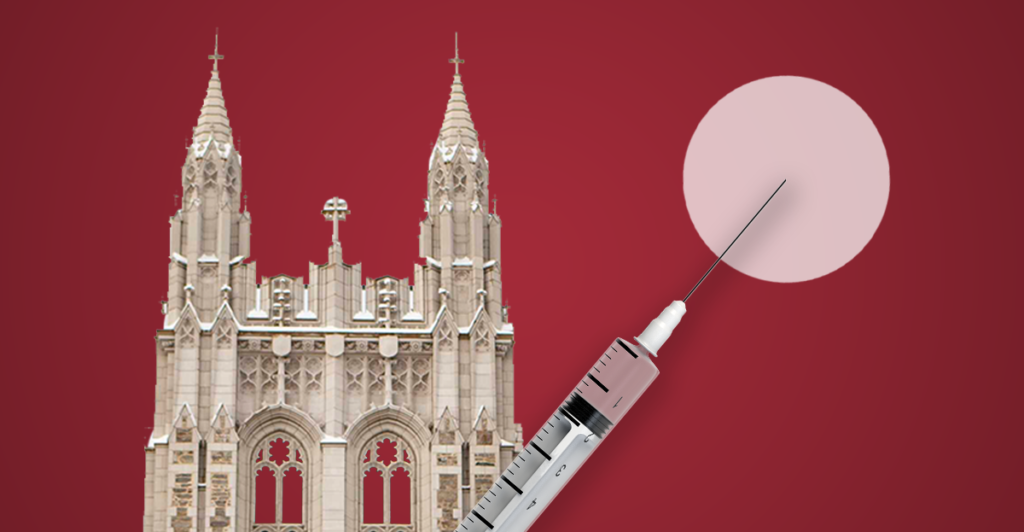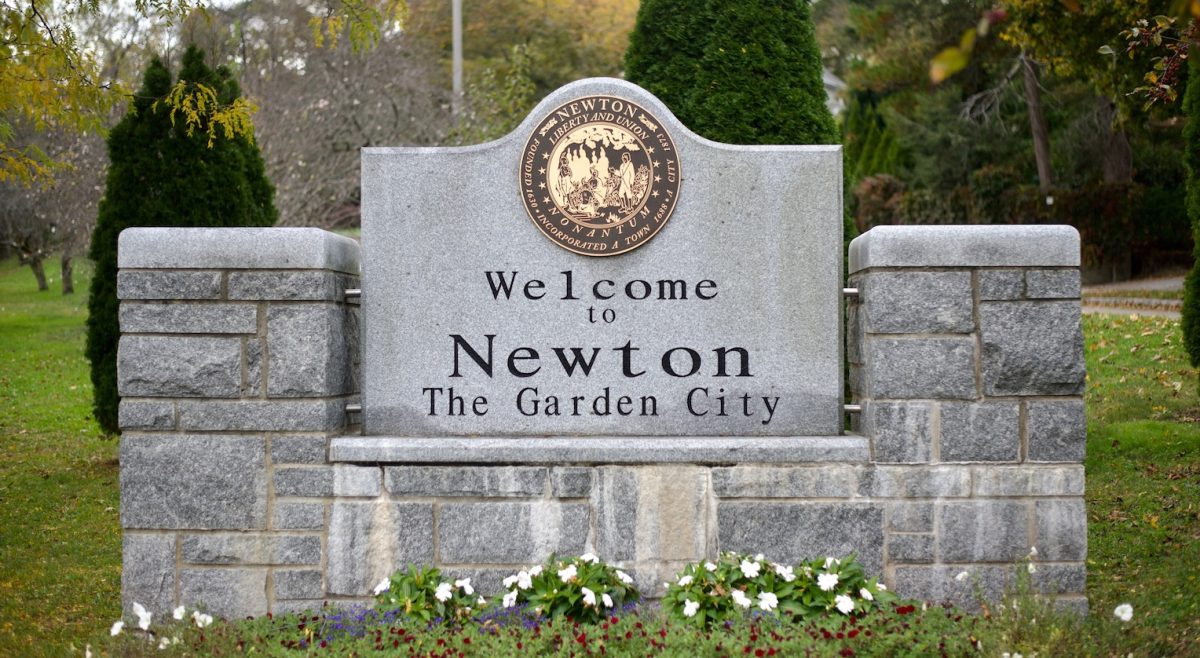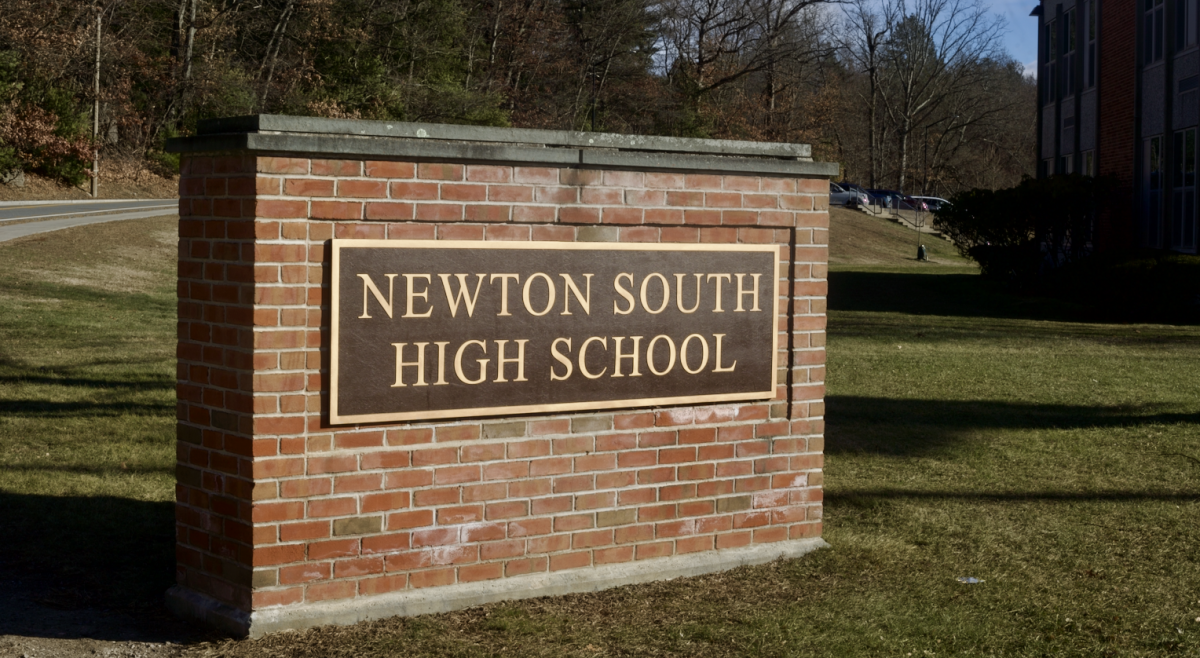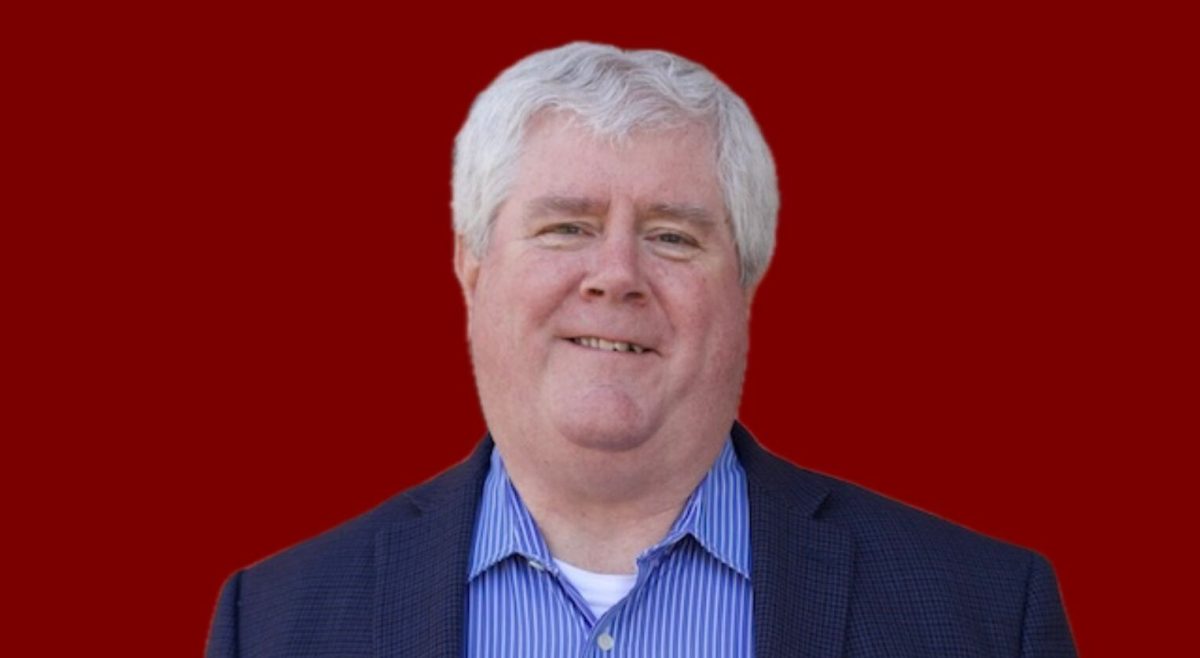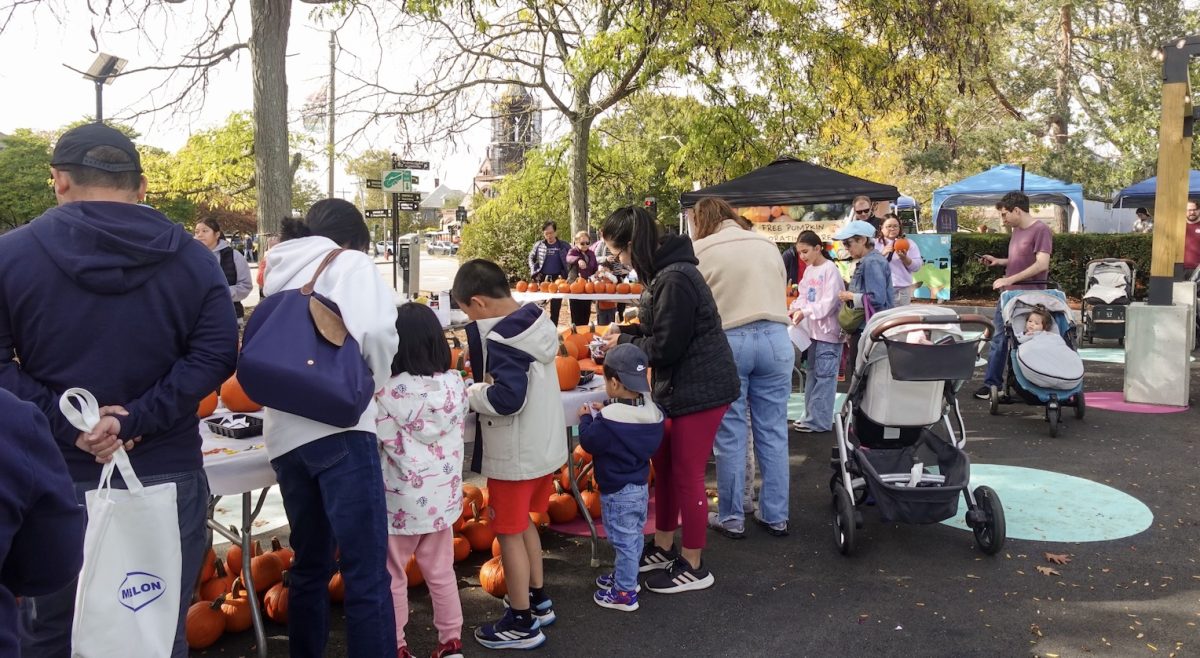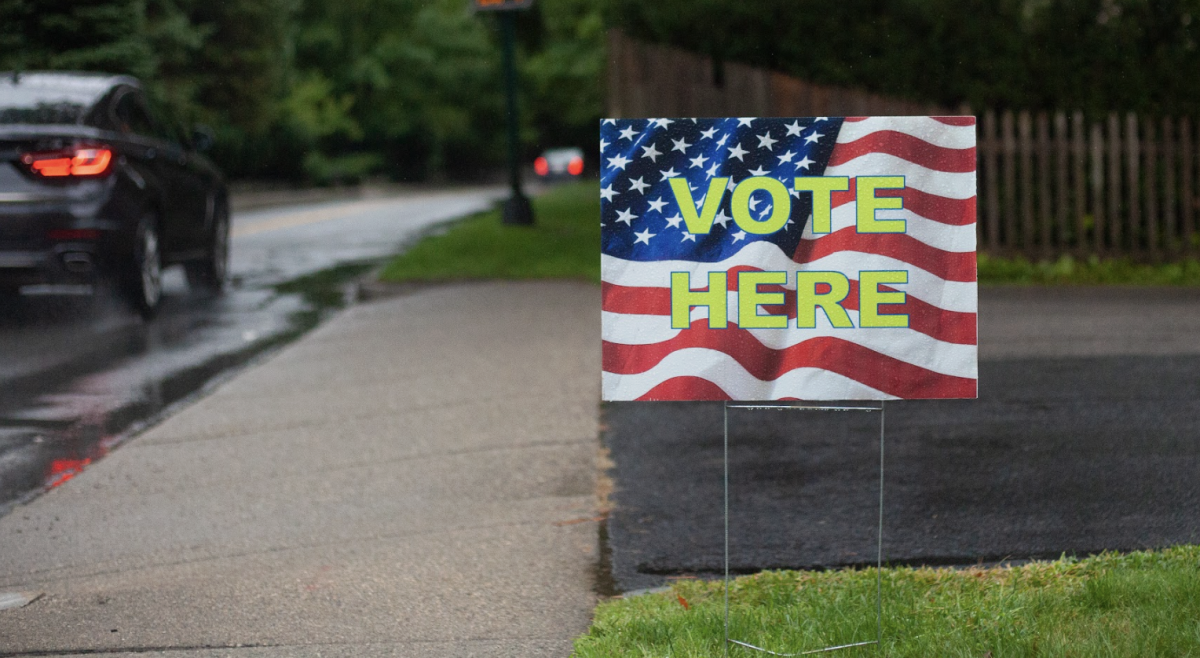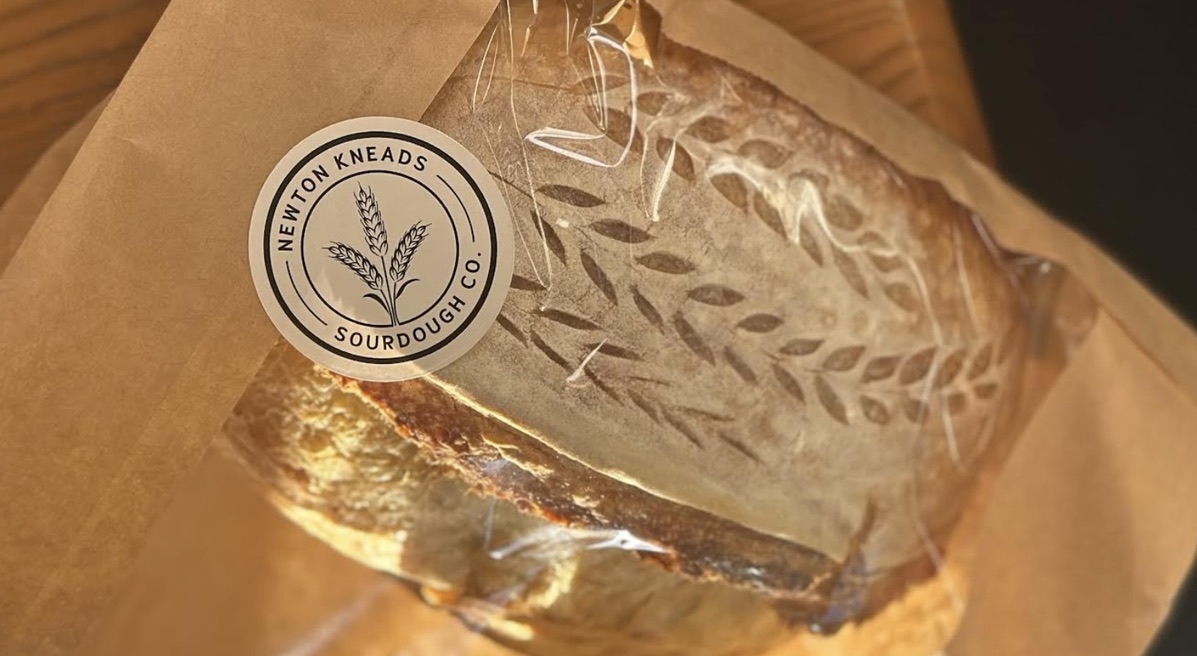After a harrowing year, receiving the COVID-19 vaccine was an emotional experience for many Newton healthcare workers. The arrival of Phase 1 of vaccinations in December for healthcare workers and first responders in Massachusetts brought a long-anticipated sense of relief.
Nanci Ginty Butler, BC ’97, the director of mental health services in adolescent and young adult medicine at Boston Children’s Hospital who lives in Newton, received the first dose of the vaccination at Gillette Stadium on Dec. 17 and the second dose on Jan. 7. She said that waiting for the first dose was like waiting for Christmas.
“I was very anxious, excited with anticipation, and I think most of the people I worked with had the same feeling,” Ginty Butler said. “When it happened it was very emotional, like just a wave of hopeful relief.”
Due to limited vaccine supplies, the Commonwealth is not allocating resources to local health departments for vaccinations at public clinics, but is instead concentrating its vaccine distributions at Fenway Park and Gillette Stadium, according to Newton Mayor Ruthanne Fuller’s statement on Jan. 26.
Within Newton, Beth Israel Lahey Health will be setting up a clinic in mid-February solely for their patients at the former Boston Sports Clubs in the Wells Ave. Office Park in Newton, according to a statement from Fuller on Feb. 4. Similarly, an additional clinic, run by Mass General Brigham will be opening a clinic at the temporarily vacant TripAdvisor office in Needham for their patients.
Eligible residents can visit the Massachusetts website to locate a nearby clinic, make an appointment, and fill out an attestation form.
The FDA authorized the emergency use of both the Pfizer and Moderna vaccines in December, both of which use mRNA and require two doses.
Ginty Butler said that at Boston Children’s Hospital one of the program managers made appointments for the entire staff, and the hospital prioritized vaccinating staff in outpatient clinics.
Caitlin O’Brien, another Newton healthcare worker, received the Moderna vaccine at the Mt. Ida Campus of the University of Massachusetts on Jan. 27 and is scheduled to receive the second dose on Feb. 24. O’Brien is a live-in staff member at Specialized Housing, a congregate living facility for adults with special needs and disabilities in Brookline.
Despite a sore arm and feeling tired after the first dose, O’Brien said that she was relieved and excited. After a few days when the fatigue went away, though, she continued to live her life as cautiously as before.
Even after being vaccinated, Ginty Butler said that she also continues to follow the same precautions at work and refrains from making plans with friends.
“So nothing’s changed in how I do things, but definitely a huge weight is lifted off my shoulders, psychologically that I know that it’s very unlikely, if I were to get COVID somehow, that I would die,” Ginty Butler said.
Colleen Murphy Keenan is a registered nurse who has worked at Sherrill House, a non-profit nursing and rehabilitation home, for 13 years. Because the residents have to be separated from their own relatives due to the pandemic, she said, the residents are like a family.
Murphy Keenan received the first dose of the Pfizer vaccine on Jan. 5 at Sherrill House, and the second dose on Jan. 26. She felt anticipation in the days leading up to her first vaccination, she said, but the injection itself only took about 30 seconds.
“I was slightly anxious and it wasn’t so much about getting sick,” Murphy Keenan said. “I wasn’t worried about that at all. I just couldn’t wait to get it and it was such a relief.”
When the director of nursing at Sherrill House was hospitalized due to COVID-19 in the spring of 2020, Murphy Keenan became the acting director. Murphy Keenan said she helped coordinate vaccinations for the residents and staff at Sherrill House with CVS Pharmacy.
Coordinating vaccinations was a surreal and emotional experience, and Murphy Keenan said that she and her colleague at Sherrill House cried while planning them. Murphy Keenan said she told her friend that she never thought vaccination day would come.
“We really went through quite a bit working here, with people getting sick and dying, and it was very traumatic,” Murphy Keenan said. “Last March I never would have thought we would be able to get this vaccine so we were very grateful for it.”
For some healthcare workers, like Cori Leech, the decision to be vaccinated was not automatic.
When the vaccine first came out, Leech—who previously worked at Newton-Wellesley Hospital and currently works for UnitedHealth Group as an implementation director for Medicaid Health Programs—said she was not sure whether she would get it. As a nurse, she knew that mRNA is a relatively new technology.
“I did quite a bit of research into what it meant, how the vaccine works, and how it’s different than other vaccines and if it was safe and all that,” Leech said. “So, I finally made the decision to get vaccinated and then made my appointment. I was excited.”
Nationwide, there has been a similar apprehension to the COVID-19 vaccines. According to a poll from Kaiser Health News, 47 percent of Americans surveyed in December do not want to get the vaccine.
In the interim period between first and second doses of the vaccinations, Murphy Keenan said that those at Sherrill House focused on educating the staff and residents who were hesitant to get the vaccine. Staff were asked why they did not want to get the vaccine and what they were afraid of, Murphy Keenan said.
“If you’ve been reading anything about other nursing homes, so many workers do not want the vaccine and I believe that’s from poor education at times, possibly not knowing enough and being scared, or misinformation,” Murphy Keenan said.
Leech received the first dose of the Moderna vaccine at Gillette Stadium on Jan. 25 and is scheduled to receive the second dose at the end of the month. Although she is aware of the possible side effects—her friend felt sick after receiving the second dose—Leech plans to go forward with receiving the second dose, because she feels it will outweigh the consequences of contracting the virus itself. The day after her vaccine, Leech plans to take the day off from work.
“I think getting a little bit sick from a vaccine is still better than getting the actual virus,” Leech said.
Another hurdle in the vaccine rollout is scheduling an appointment. Massachusetts entered Phase 2 of its COVID-19 vaccine distribution on Feb. 1, vaccinating those 75 years and older. This phase also includes those 65 and older with certain medical conditions, as well as workers in areas such as transportation and early education.
According to Leech, the process of securing an appointment is “a pain.” After going through the process of making an appointment both for herself and her husband, Leech made a Facebook post in two Newton Facebook groups offering help for others making an appointment online.
“I’ve been helping other people, other elderly people, make the appointments because they can’t figure it out,” Leech said. “It’s very complicated.”
Leech said that making an appointment can feel confusing and overwhelming for people but after explaining the process to others, she found that most people, with the exception of very elderly people, were able to make an appointment on their own.
“So you know I feel like the state just really missed the boat on this one, all they had to do is step by step instructions and people would have been able to handle it,” Leech said
To make it easier for those who are unable to access the vaccination website, Governor Charlie Baker announced on Friday that his administration is setting up a call center to assist those who are 75 years or older and cannot access the vaccine website.
“Live call center workers will be available who can speak both English and Spanish and we’ll have translators available to support residents in about a hundred additional languages,” Baker said in a press conference on Friday. “This resource is aimed at helping residents 75 and over access an appointment. Call center workers will have the same access to appointments that users will see if they go to mass.gov/covidvaccine.”
For Newton seniors without access to a computer, or friends or family to help them make a vaccination appointment, they can call Newton Senior Center and a staff member will assist them, according to the City of Newton website.
Although scheduling an appointment can be difficult and receiving the vaccine may be coupled with anxiety for some people, O’Brien advises that everyone who can get the vaccine should do so.
“I think everyone should get it, and I think, you know, it’s a good thing even if there’s a lot of unknowns. I feel like it’s safe, I feel like it’s good for our community,” O’Brien said. “It’s good for Newton, it’s good for our country too, for everyone to get it, to hopefully just reach the light at the end of this tunnel.”
Featured Image Courtesy of Marcia Beatriz Einsfeld / Wikimedia Commons

